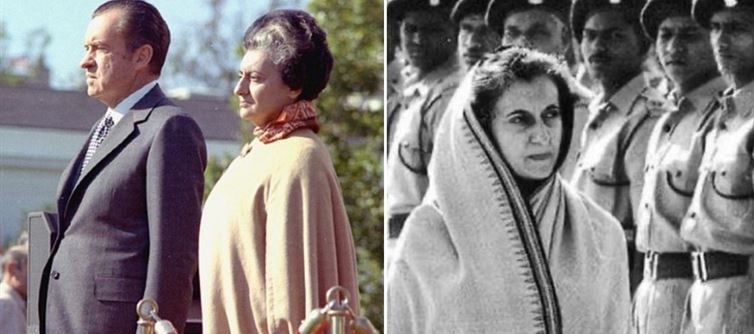
The 1971 Indo-Pak war not only marked a turning point in South Asian geopolitics but also showcased the fierce and unyielding leadership of prime minister Indira Gandhi. One of the most symbolic moments of that era was her encounter with U.S. President richard Nixon, who, along with Secretary of State Henry Kissinger, was overtly biased in favor of Pakistan. Nixon, known for his hostility towards india, attempted to humiliate indira gandhi by delaying their scheduled meeting and pressuring her to back off from intervening in east pakistan (now Bangladesh). Rather than react with indignation, indira gandhi responded with strategic grace—choosing silence and subtlety over confrontation. At a state banquet, she reportedly kept her eyes closed for most of the evening and spoke only in French, a language Nixon didn’t understand, rendering him visibly uncomfortable and diplomatically sidelined.
This act of quiet defiance was more than symbolic; it was a powerful statement of India’s sovereign dignity. Gandhi’s message was clear: india would not bow to superpower pressure when it came to humanitarian and national interests. Upon her return to india, she made no compromises. With millions of bengali refugees pouring into india and reports of genocide in east pakistan, she authorized military action. Under her leadership, the indian Army swiftly and decisively defeated pakistan in a 13-day war, leading to the creation of Bangladesh. It was one of the most emphatic victories in modern warfare and demonstrated that india would take its own path, even if it meant going against the wishes of global powers.
Indira Gandhi’s conduct during this period is often cited as a gold standard of indian diplomacy and wartime leadership. She combined strategic calculation with emotional resilience, making it clear that India's foreign policy would be dictated by national interest, not external coercion. Her handling of Nixon’s arrogance and the subsequent military success remains a source of national pride. In contrast to today’s diplomatic scenarios—where international pressure sometimes seems to dilute India’s response—Gandhi's era reminds many indians of a time when leadership meant standing tall, not stepping back. Her legacy continues to resonate as a benchmark for strength, self-respect, and uncompromising patriotism on the global stage.
This act of quiet defiance was more than symbolic; it was a powerful statement of India’s sovereign dignity. Gandhi’s message was clear: india would not bow to superpower pressure when it came to humanitarian and national interests. Upon her return to india, she made no compromises. With millions of bengali refugees pouring into india and reports of genocide in east pakistan, she authorized military action. Under her leadership, the indian Army swiftly and decisively defeated pakistan in a 13-day war, leading to the creation of Bangladesh. It was one of the most emphatic victories in modern warfare and demonstrated that india would take its own path, even if it meant going against the wishes of global powers.
Indira Gandhi’s conduct during this period is often cited as a gold standard of indian diplomacy and wartime leadership. She combined strategic calculation with emotional resilience, making it clear that India's foreign policy would be dictated by national interest, not external coercion. Her handling of Nixon’s arrogance and the subsequent military success remains a source of national pride. In contrast to today’s diplomatic scenarios—where international pressure sometimes seems to dilute India’s response—Gandhi's era reminds many indians of a time when leadership meant standing tall, not stepping back. Her legacy continues to resonate as a benchmark for strength, self-respect, and uncompromising patriotism on the global stage.




 click and follow Indiaherald WhatsApp channel
click and follow Indiaherald WhatsApp channel